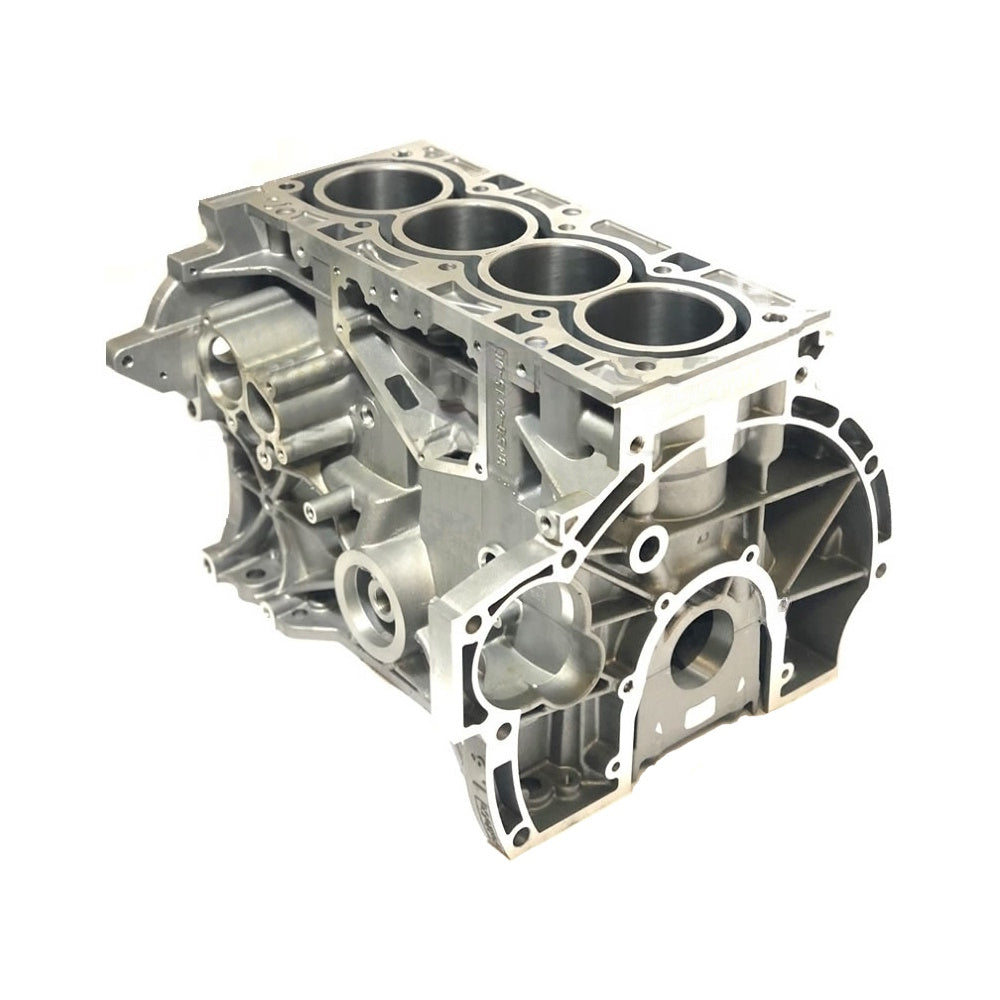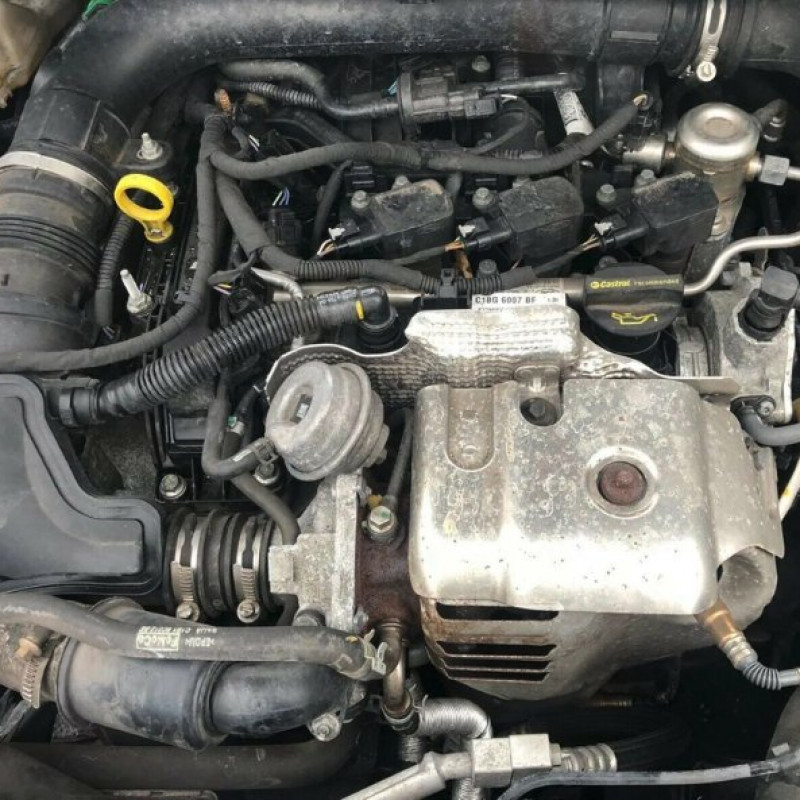Expert Tips for Optimizing Your Ford Fiesta Engine Efficiency
Expert Tips for Optimizing Your Ford Fiesta Engine Efficiency
Blog Article
The Future of Engines: Technologies Driving Lasting Power Solutions
As the auto industry navigates the necessary change in the direction of sustainability, the future of engines is significantly specified by groundbreaking advancements. Electric engine improvements, together with promising growths in hydrogen gas cells and biofuels, are improving the landscape of power remedies. The development of crossbreed systems even more complicates this advancement, presenting both challenges and opportunities to minimize discharges properly. Paired with the integration of expert system in engine layout, these technical strides raise crucial inquiries concerning their long-term viability and effect on conventional paradigms. What might this mean for the industry and customers alike?
Electric Engine Advancement
The development of electrical engine advancements indicates a pivotal change in the aerospace and automotive sectors, driven by the urgent requirement for sustainable alternatives to fossil gas. This change is characterized by considerable innovations in battery modern technology, power electronics, and electric motor style, which jointly improve the efficiency and performance of electrical engines.
Recent advancements have brought about the production of lighter, much more energy-dense batteries, such as lithium-silicon and solid-state batteries, which guarantee longer arrays and shorter charging times. In addition, improvements in electric motor performance, such as the use of long-term magnets and progressed cooling systems, make it possible for electrical engines to operate efficiently under differing conditions. These enhancements not only boost automobile efficiency however also add to a decrease in general power consumption.
Additionally, the integration of sophisticated software program formulas has actually enhanced power administration in electric automobiles, enabling regenerative stopping and predictive charging approaches. As manufacturers increasingly welcome electric propulsion, the aerospace and vehicle markets are seeing a paradigm change in the direction of greener modern technologies. This evolution not only fulfills regulatory needs however also straightens with consumer preferences for eco-friendly transportation services, solidifying electric engines as a keystone of future lasting movement.
Innovations in Biofuels
As the automotive and aerospace markets increasingly focus on lasting power resources, developments in biofuels become a corresponding solution to electrical engines. Biofuels, stemmed from organic products such as crops, waste, and algae, present an innovative opportunity for minimizing greenhouse gas exhausts and reliance on fossil gas.
Recent research study has concentrated on boosting the effectiveness and sustainability of biofuel production. Second-generation biofuels make use of non-food feedstocks, lessening competition with food supply and minimizing ecological influence. Advancements in artificial biology have actually allowed the design of bacteria to produce biofuels more successfully, leading to higher yields and reduced manufacturing prices.
Additionally, the advancement of drop-in biofuels permits for seamless integration into existing framework, allowing a smoother transition for sectors generally reliant on nonrenewable fuel sources. ford fiesta engine. These fuels can be used in existing engines without adjustments, facilitating their adoption throughout different markets
Investments in biofuel technology, together with helpful plans, are vital to drive innovation and scalability. As the global area seeks to deal with climate change, biofuels provide a pragmatic, immediate remedy that lines up with the overarching goal of sustainability in transport and air travel.
Hydrogen Fuel Cell Modern Technology
A growing variety of companies and researchers are exploring hydrogen gas cell innovation as a feasible option to traditional power sources in transport and power systems. This technology converts chemical energy from hydrogen into electrical energy via an electrochemical reaction, with water as the only byproduct, making it an environmentally pleasant option.
The core of hydrogen fuel cells is the gas cell pile, where hydrogen molecules are divided into electrons and protons. The circulation of electrons produces electrical energy, while protons move via a membrane to combine with oxygen from the air, creating water. This procedure causes high performance and reduced exhausts, placing hydrogen fuel cells as an important player in the change to sustainable power.
Substantial advancements have been made in enhancing the resilience and performance of gas cells, alongside reducing costs with innovative manufacturing techniques. Moreover, the development of hydrogen manufacturing methods, such as electrolysis powered by renewable resource resources, enhances the sustainability of the general system. As facilities for hydrogen refueling expands and manufacturing methods become much more efficient, hydrogen fuel cell more tips here modern technology holds great assurance for decarbonizing different markets, consisting of sturdy transport and stationary power generation.
Crossbreed Systems and Their Effect
Crossbreed systems stand for a considerable evolution in lasting engine technology, combining standard interior combustion engines with electric propulsion to optimize power efficiency and decrease discharges (ford fiesta engine). This twin approach permits lorries to utilize both power resources, enabling better versatility in energy consumption and minimizing dependence on fossil fuels

In enhancement to environmental benefits, hybrid systems use consumers a viable shift towards completely electrical cars. They reduce range anxiousness by combining the comfort of gasoline with the benefits of electric propulsion, making them an attractive choice for a bigger audience.
The Duty of AI in Engine Style
Leveraging innovative algorithms and artificial intelligence strategies, the vehicle market is progressively incorporating synthetic knowledge (AI) right into engine style procedures. AI improves the performance and performance of design by assessing vast datasets to determine optimal configurations and efficiency criteria. This capacity enables designers to replicate different operating conditions and anticipate engine behavior under several circumstances, considerably reducing the moment and price related to traditional prototyping methods.
Furthermore, AI assists in the advancement of advanced materials and burning processes customized for sustainability. By maximizing fuel performance and minimizing exhausts, AI-driven designs align with international campaigns targeted at minimizing the carbon footprint of automotive engines. Artificial intelligence formulas can also anticipate maintenance requirements, causing boosted dependability and durability of engine components.
Additionally, AI contributes in the integration of electrification modern technologies, such as hybrid systems, where it can optimize battery management and energy recuperation processes. As the industry relocates towards more lasting power services, the duty of AI in engine style ends up being increasingly essential, driving advancement and enhancing the performance of future engines. Inevitably, the cooperation in between AI and engine layout declares a new era of smarter, cleaner, and more efficient automotive innovations.

Verdict
In verdict, the future of engines is being shaped by a convergence of ingenious modern technologies that prioritize sustainability. Electric engine innovations, biofuel growths, hydrogen fuel cells, and hybrid systems jointly add to a considerable decrease in emissions and environmental impact.
Electric engine developments, along with encouraging growths in hydrogen fuel cells and biofuels, are improving the landscape of power remedies. Additionally, enhancements in electric motor efficiency, such as the usage of irreversible magnets and advanced cooling systems, make it possible for electrical engines to operate successfully under differing problems. By optimizing fuel efficiency and minimizing exhausts, AI-driven styles straighten with international initiatives intended at decreasing the carbon footprint of auto engines. As the market relocates towards even more lasting power options, the role of visit the site AI in engine layout comes to be significantly essential, driving development and boosting the efficiency of future engines. Electric engine advancements, biofuel developments, hydrogen fuel cells, and hybrid systems jointly add to a substantial reduction in emissions and why not find out more ecological impact.
Report this page